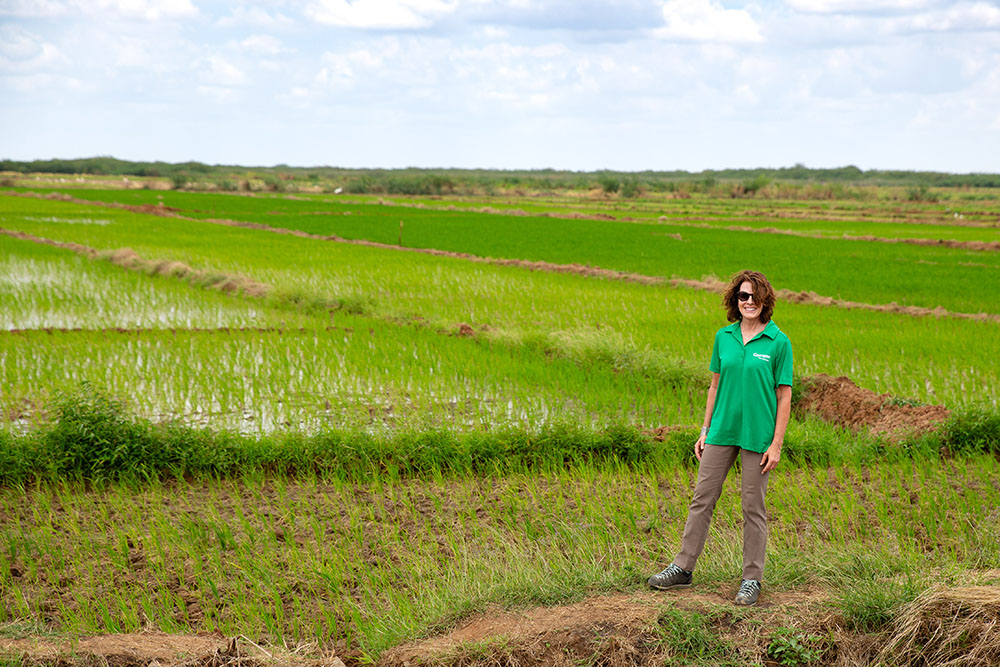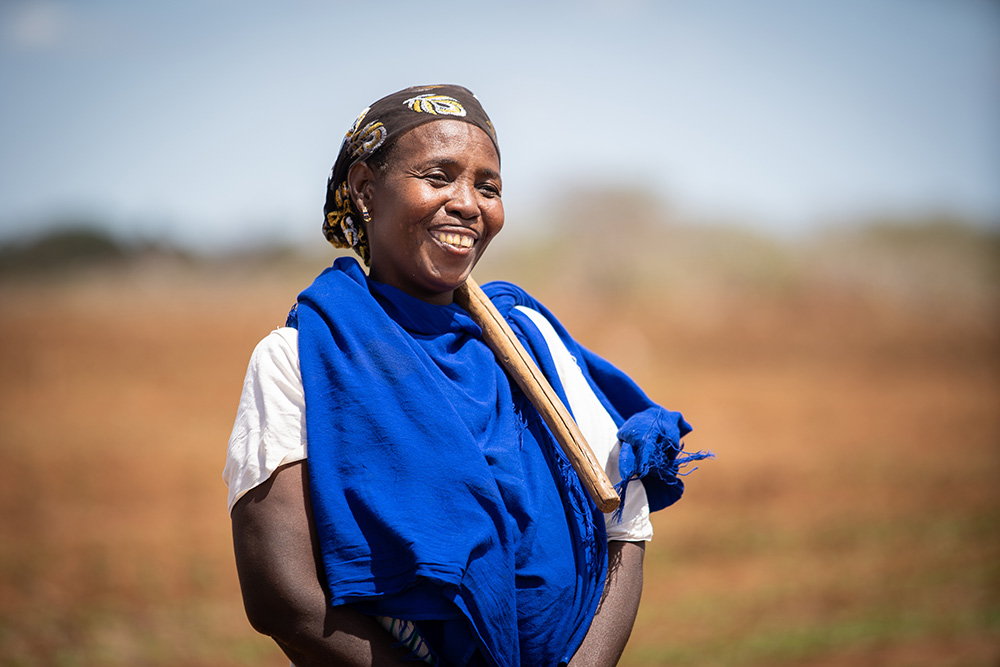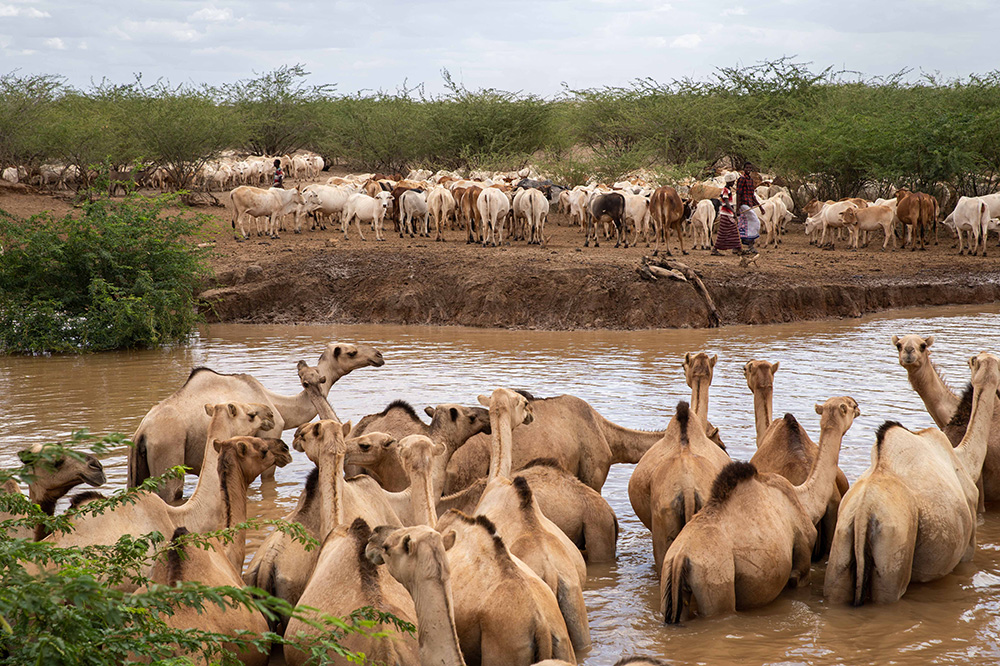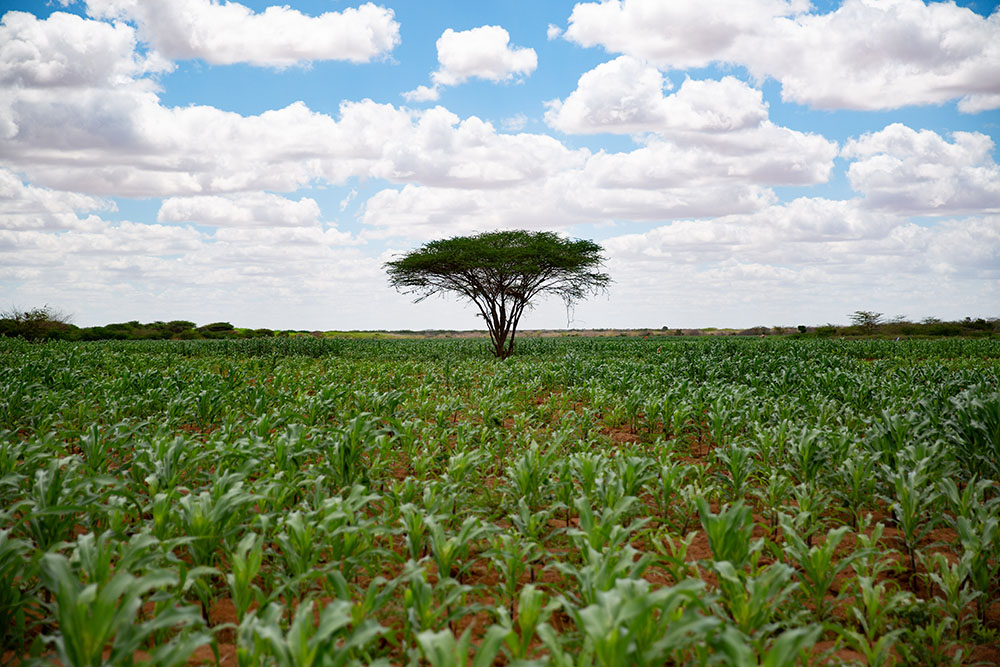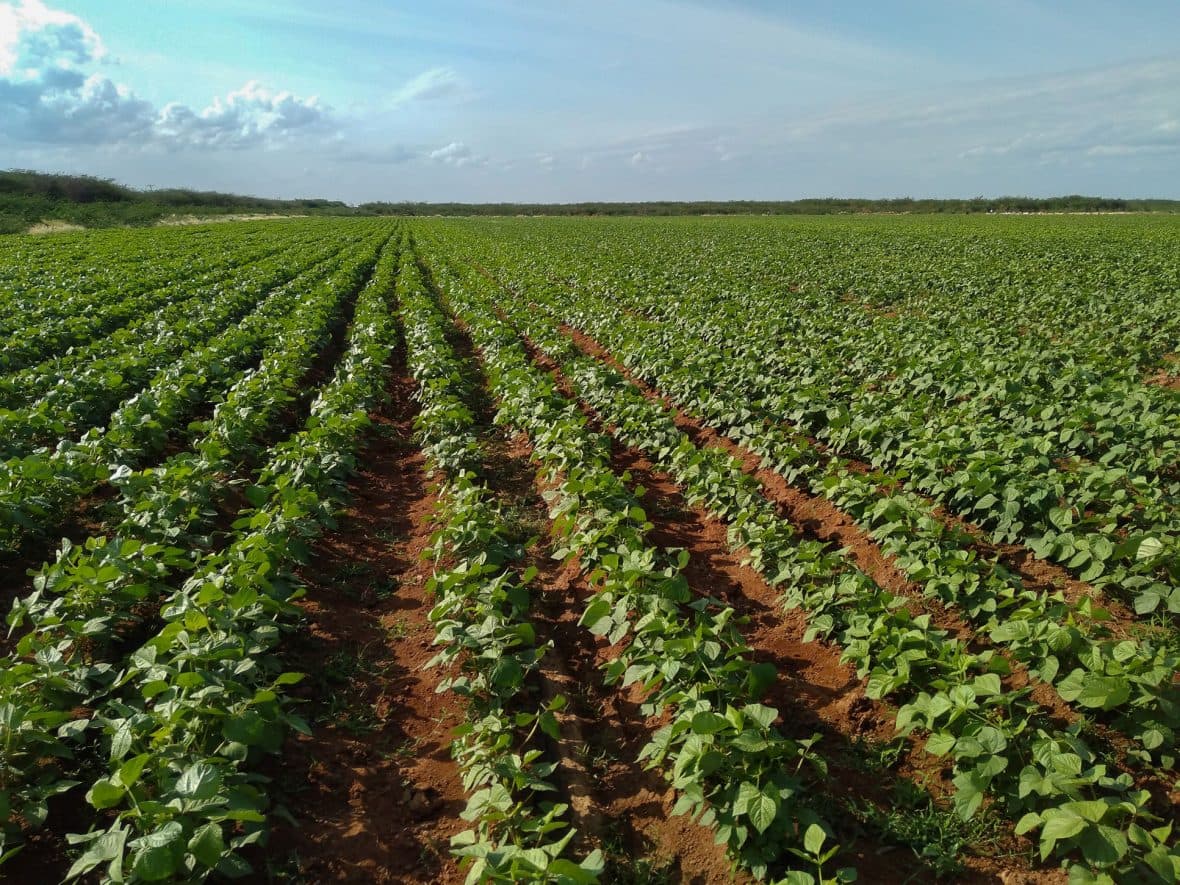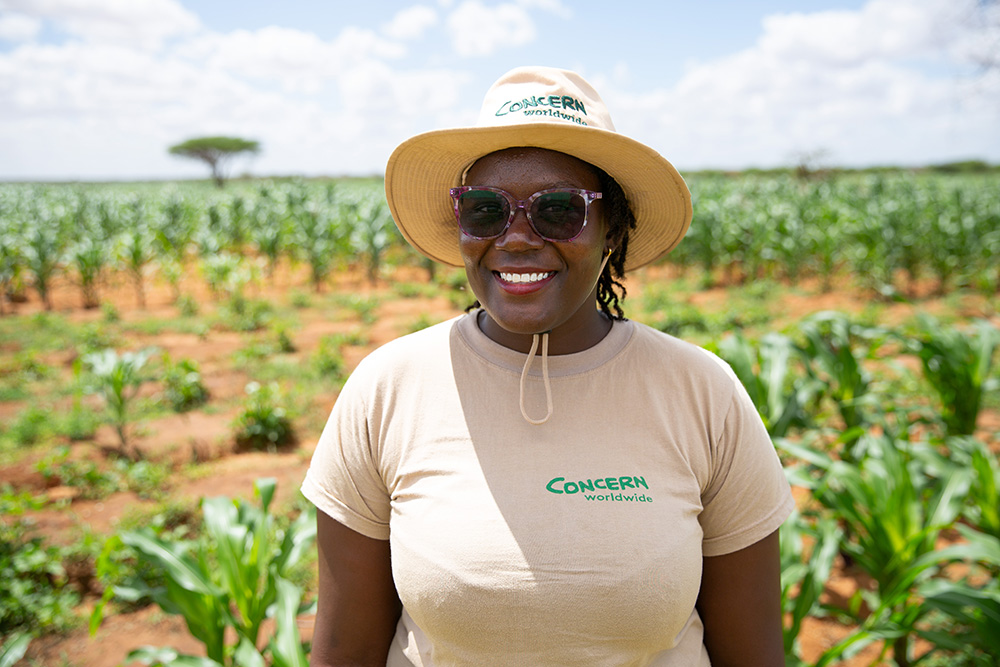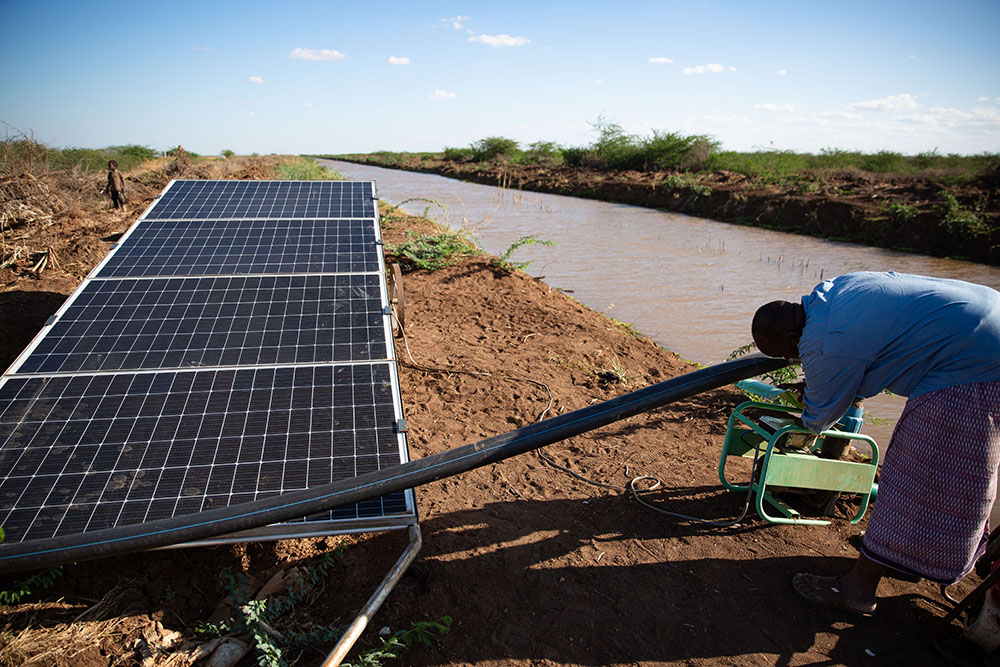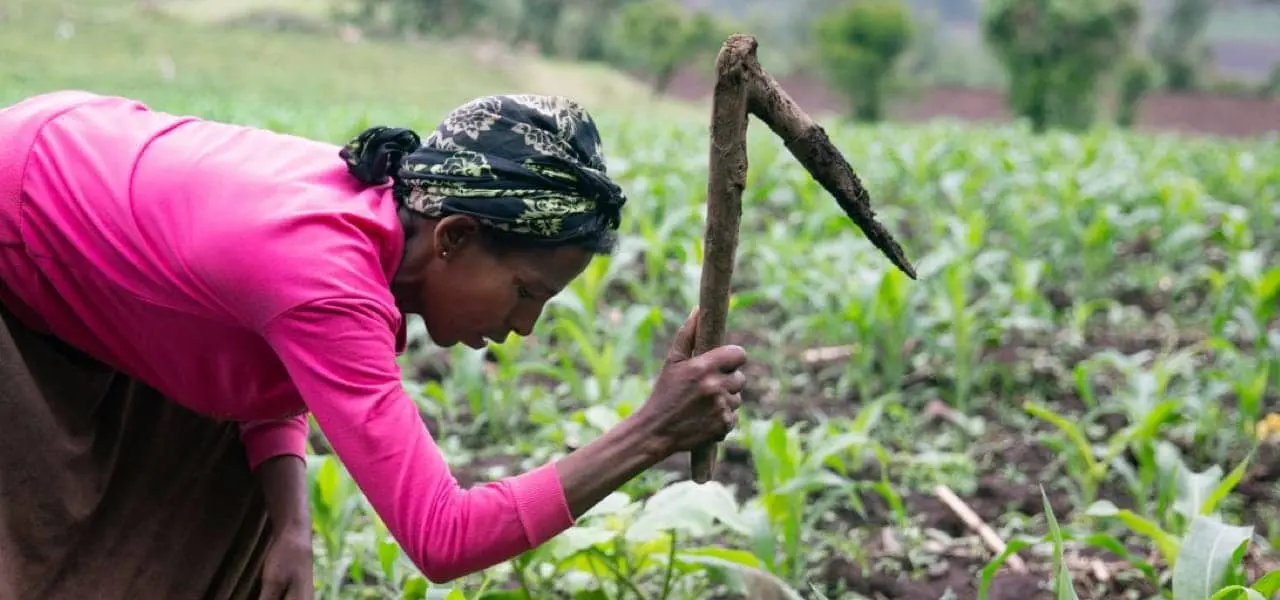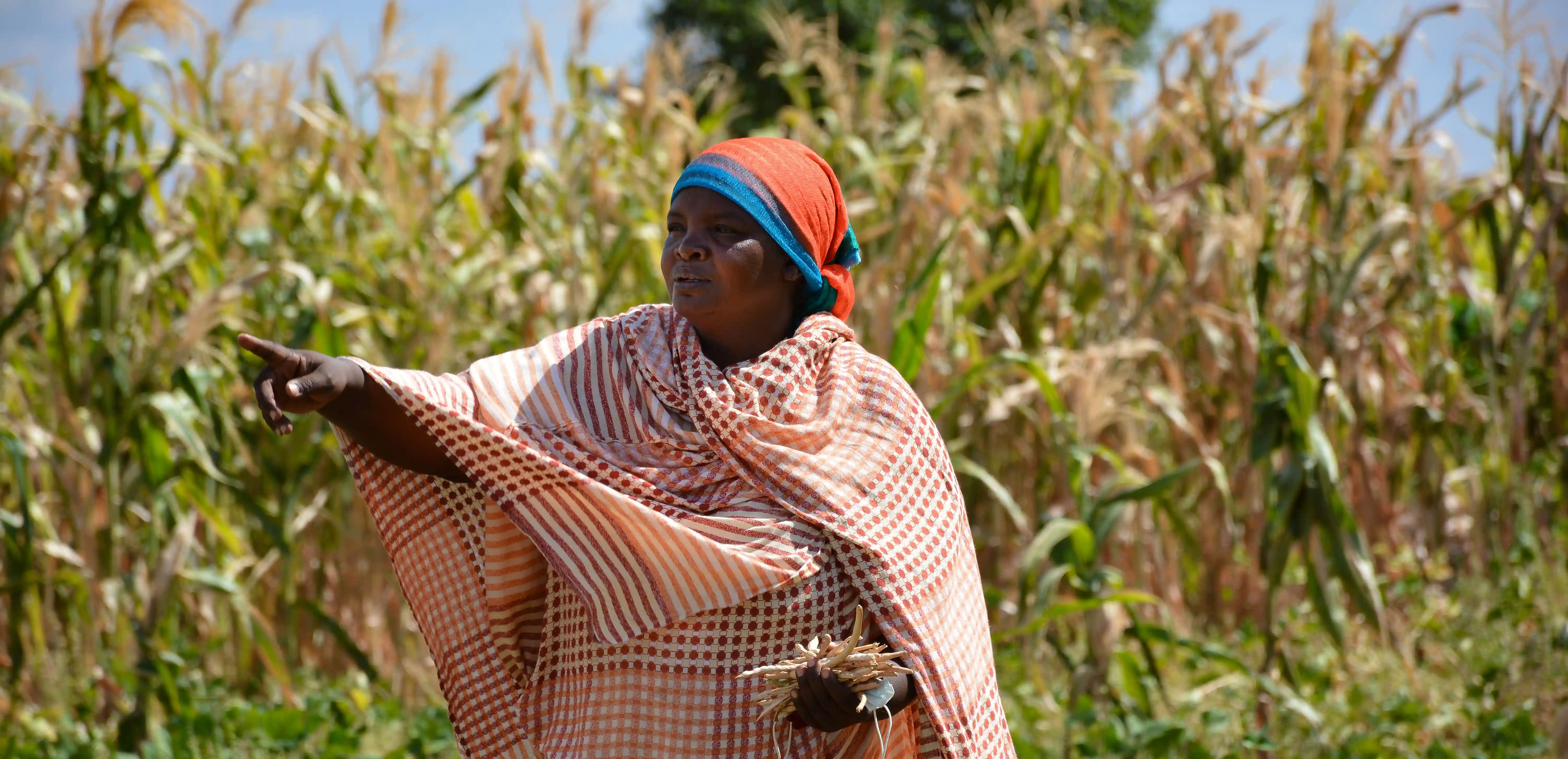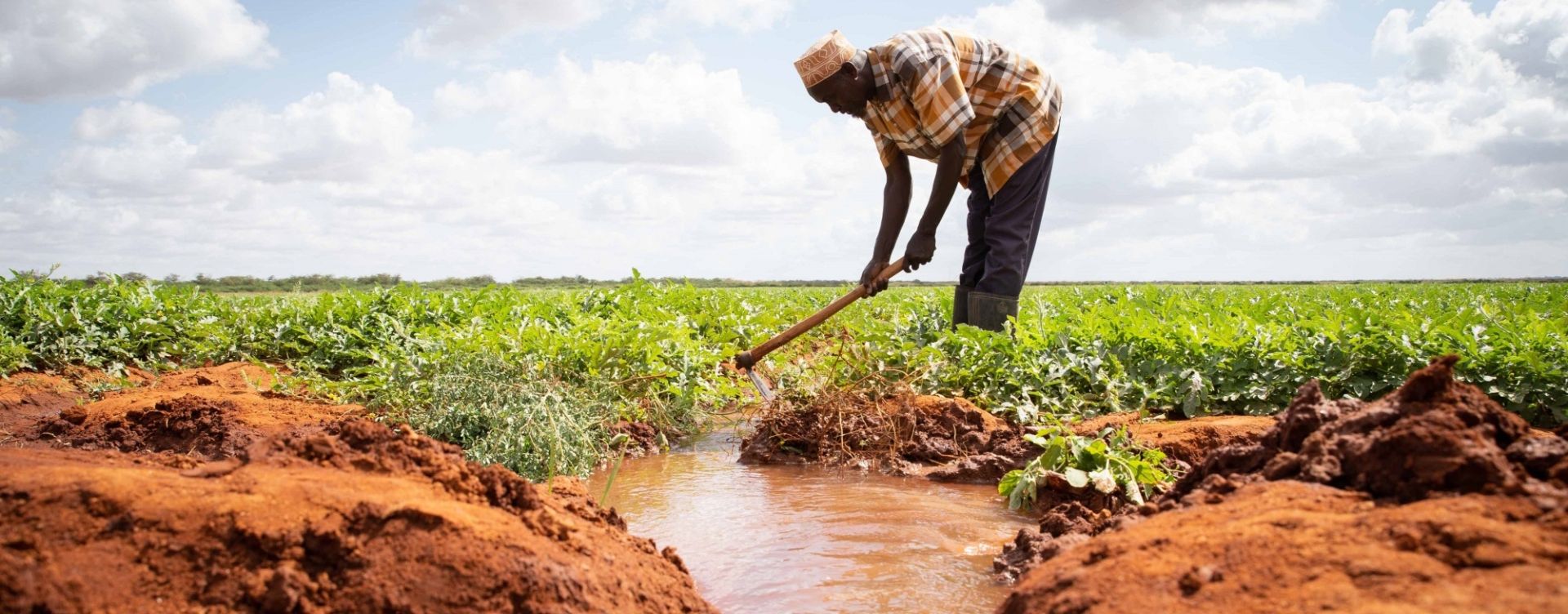We were excited to recently host a representative of one of our major corporate supporters on a visit to Kenya, to see firsthand the impact of their investment in Concern’s work.
Alison Taylor is Chief Sustainability Officer for Illinois-based ADM, the world’s premier agricultural origination and processing company. ADM funded the LEAF program (Livesaving Education and Assistance to Farmers) in Kenya’s Tana River County, designed to help families deal with the challenges of climate change, enhance food security, and improve nutrition.
Tana River is Concern’s newest area of operation in Kenya — a base was established in the main commercial hub of Hola in 2019.
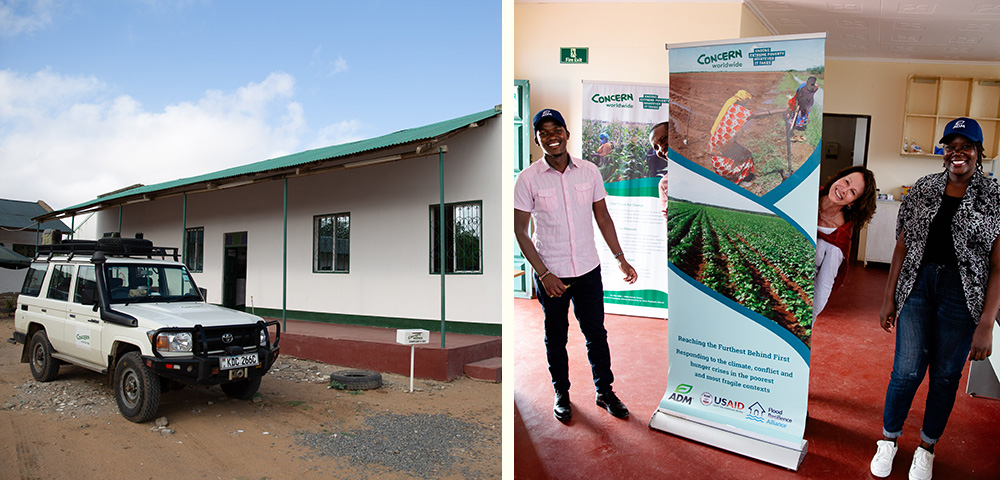
Twice the size of the state of Connecticut, with a tenth of the population, Tana River County lies east of Nairobi and north of Mombasa. Traditionally, people here have survived through livestock herding (pastoralism) across the arid plains, along with some small-scale subsistence agriculture.
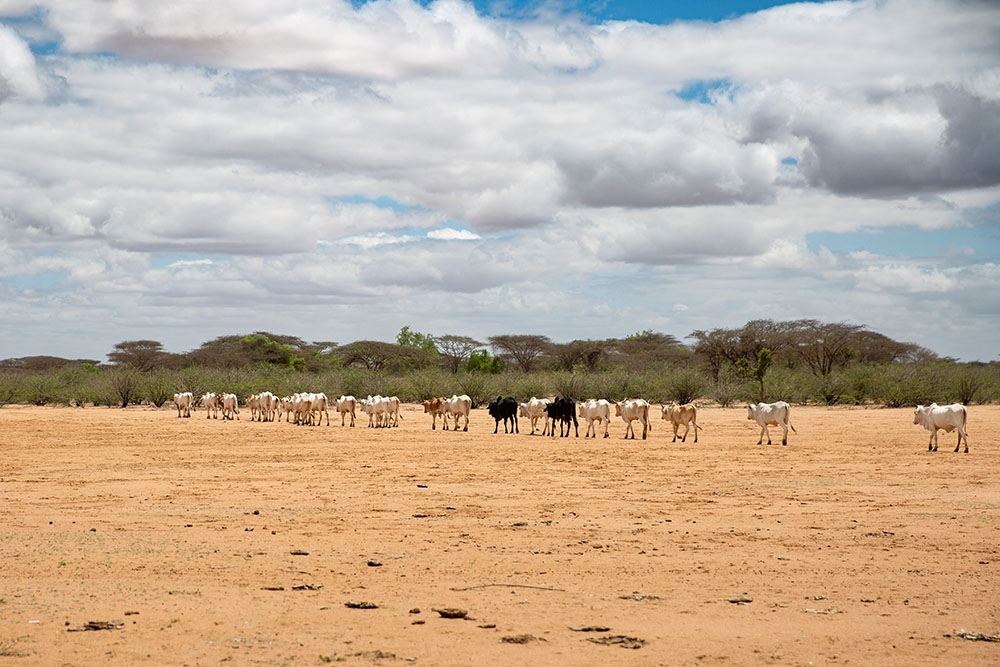
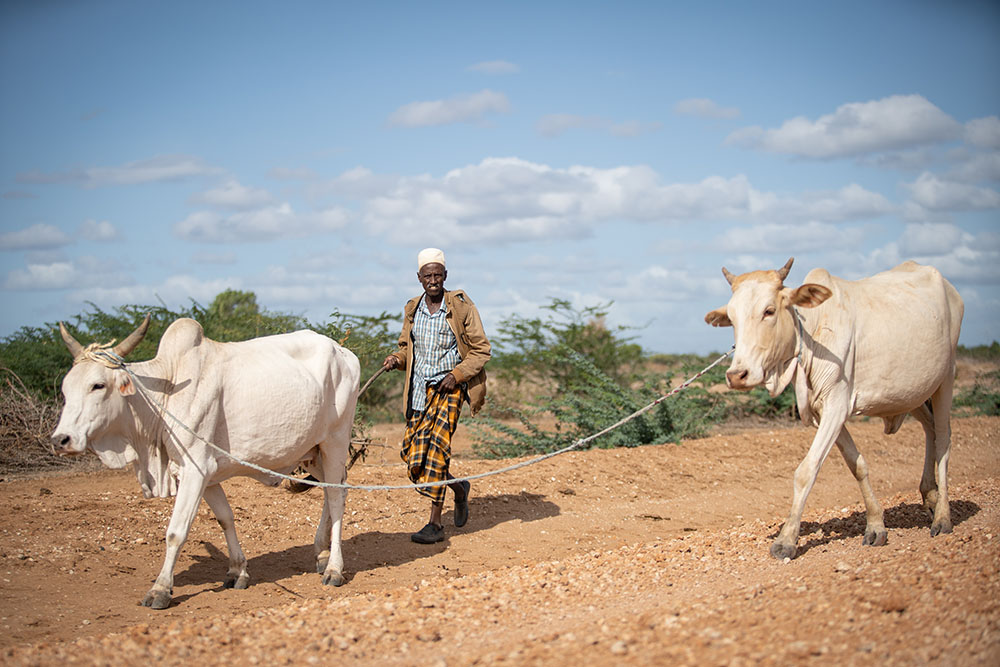
Concern’s Program Director for Kenya, Hassan Olow, says the area has been consistently marginalized for decades, with widespread poverty and chronic under-investment in public services.
A 2021 report showed that one third of the population in Tana River County was living on less than a dollar a day. To continue with the Connecticut analogy, that’s not even 0.5% of the per capita income in the the Constitution State.
Climate change and erratic rainfall over the past decade have made the situation worse, with pastoralists losing hundreds of thousands of animals to drought and floods. In 2021, nearly 70,000 people in Tana River County were reliant on food aid and financial supports, and child malnutrition had reached alarming levels.
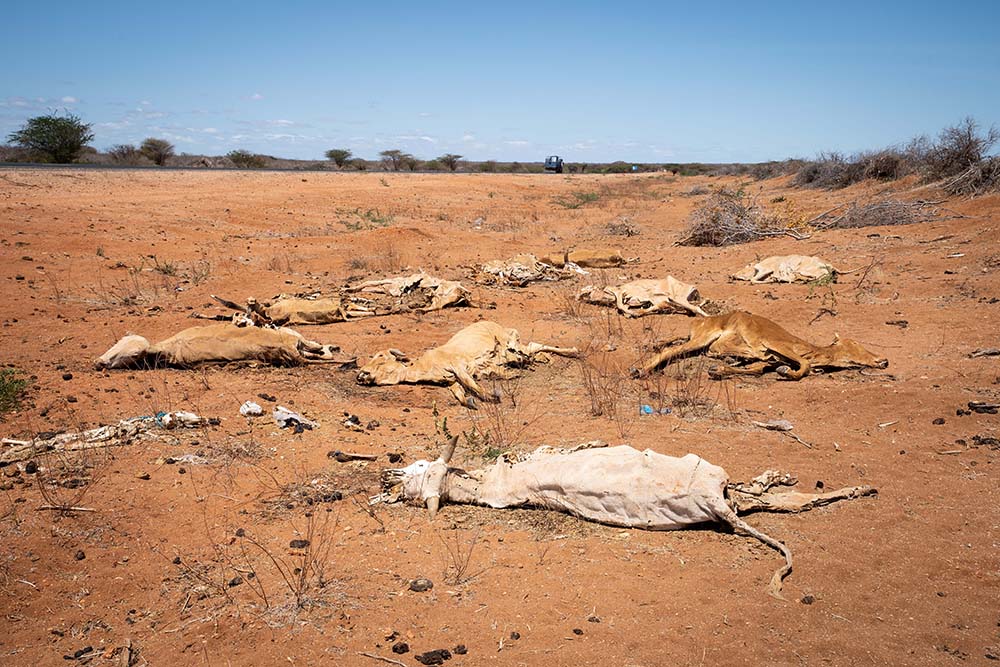
Hundreds of miles to the west, the mighty Mount Kenya collects and releases millions of gallons of water every year into the river that gives this county its name. The longest in Kenya, its waters flow for hundreds of miles through the dusty plains of Tana River County. Over the years, efforts were made to tap the flow for agricultural use, but various irrigation schemes brought limited benefit to those most in need.
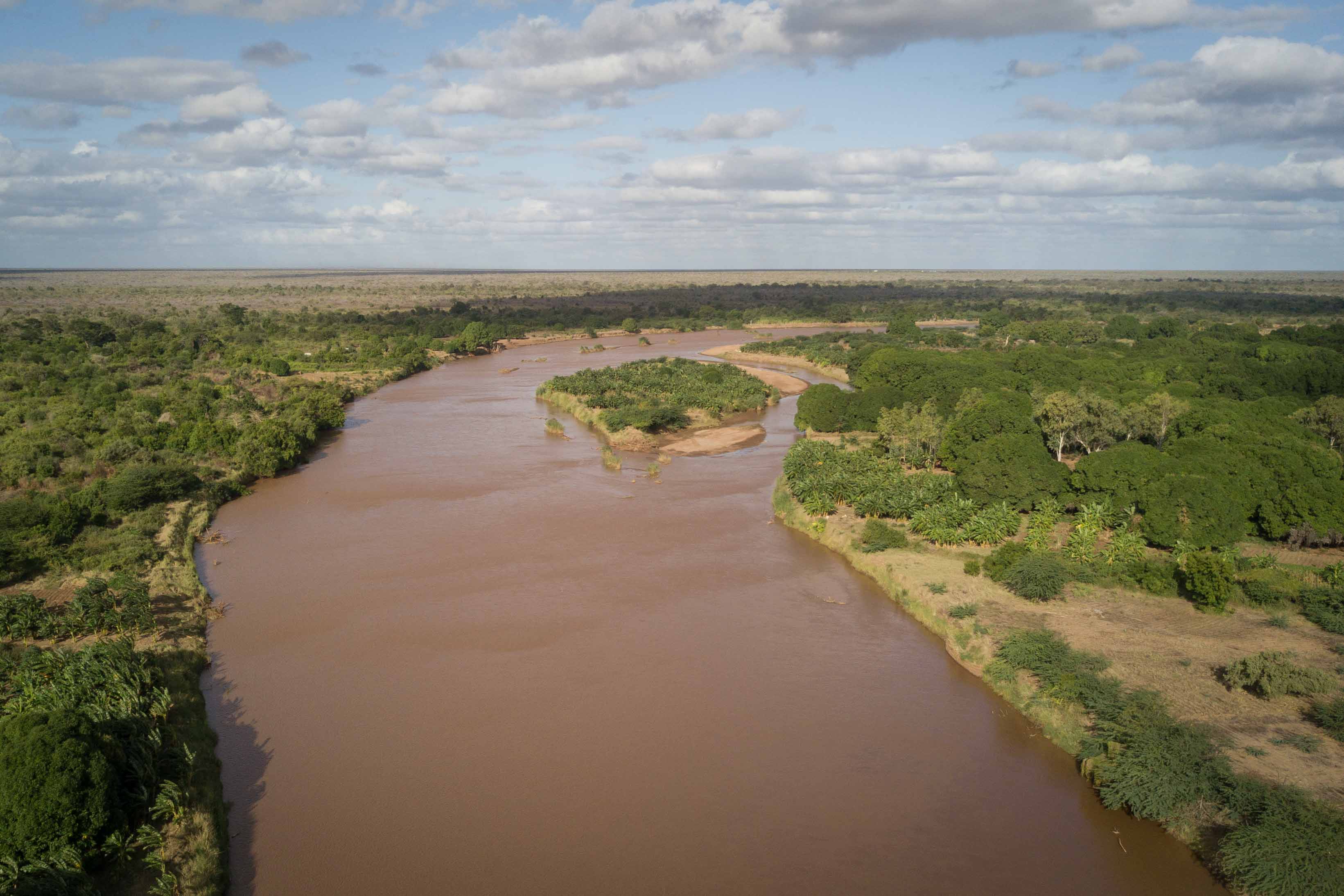
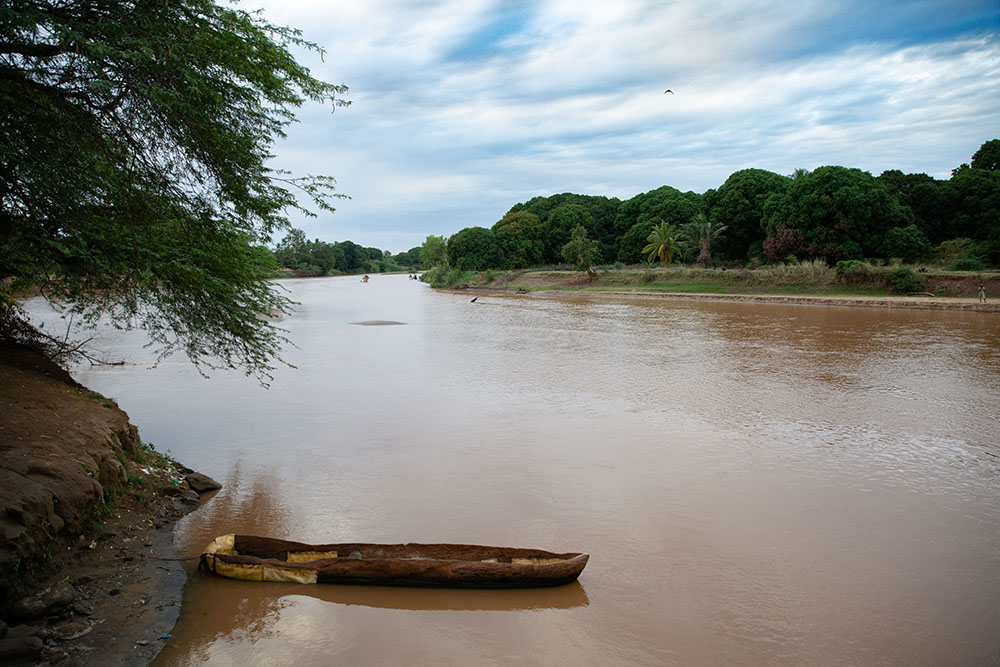
Alex Ogeto Nyabuti leads the Concern Worldwide team in Tana River:
“It was obvious that a fresh approach was needed to solve this challenge. All that arable land holds enormous potential and we have a massive resource available to help unlock that potential. But building irrigation infrastructure is not enough. Communities don’t just need access to water, they also need resources to develop the land, and they need the skills, knowledge, and capital required to grow crops in a commercially viable and sustainable way.”
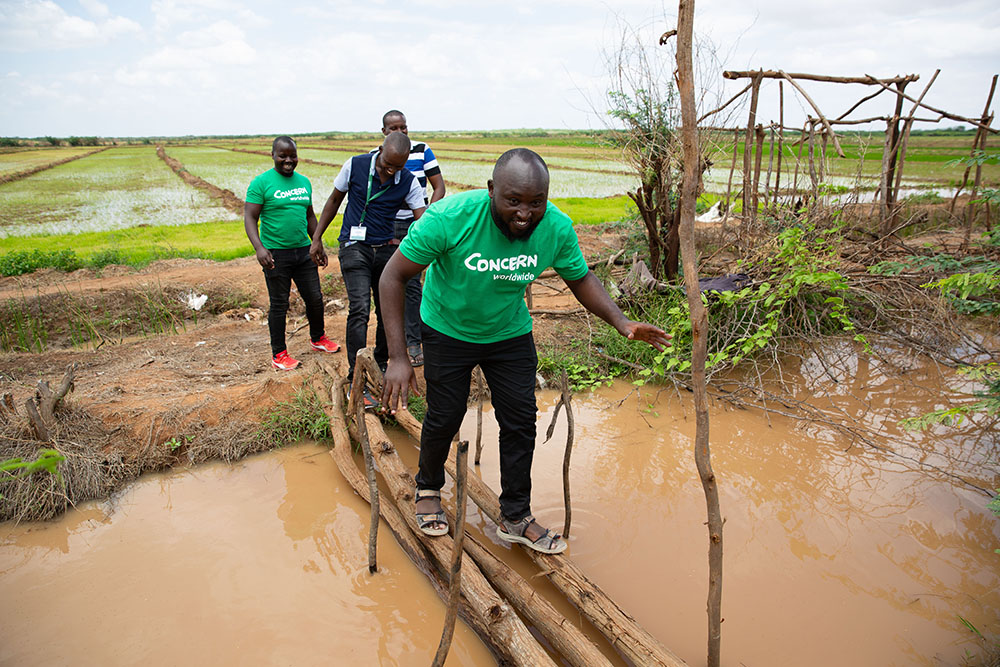
And that’s exactly what has been happening, thanks to a 4-way partnership between the communities, government, ADM, and Concern that has been yielding remarkable results. You can read more about the LEAF program here.
Alison Taylor, Chief Sustainability officer for Illinois-based food giant, ADM explains:
“Concern approached us with a concept that we quickly realized could be a game-changer. Their idea, developed in cooperation with the communities and local authorities of Tana River, was to put in place a comprehensive program designed to hit all the bases. With our knowledge and experience in the field of food and nutrition, and a commitment to funding sustainable change in areas of need, it made total sense to become a partner.”
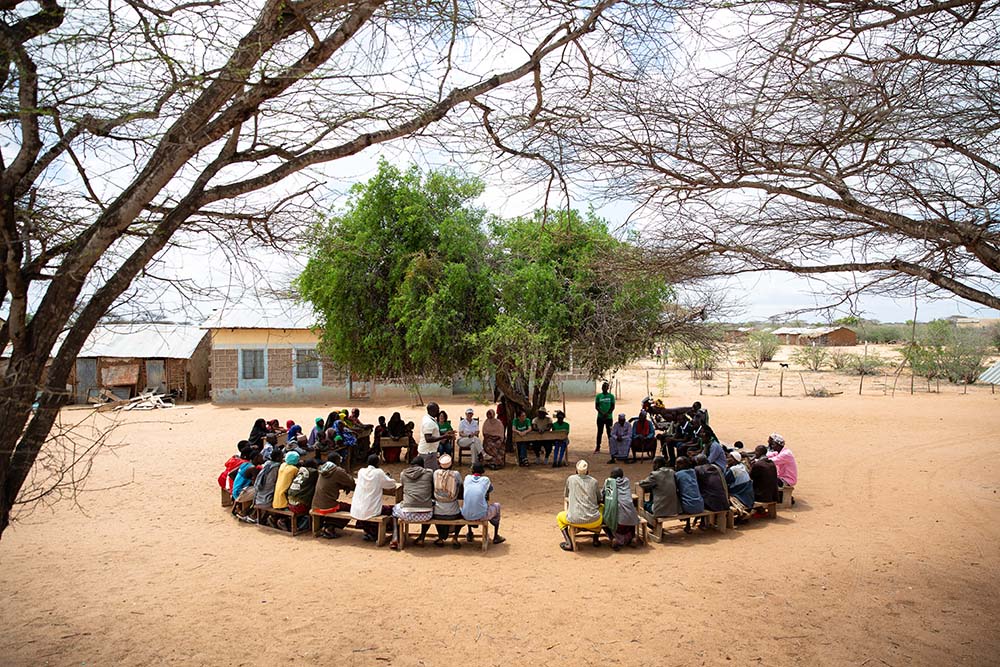
Alison, accompanied by Concern US CEO Colleen Kelly and Regional Director for the Horn of Africa, Amina Abdulla, got the opportunity to meet with participating communities and hear individual stories of impact. First stop was Matagala, a pastoralist community with almost no history of agriculture. There the group heard an extraordinary tale of transformation, involving training, mentorship, and financial support, which has resulted in a thriving agricultural business.
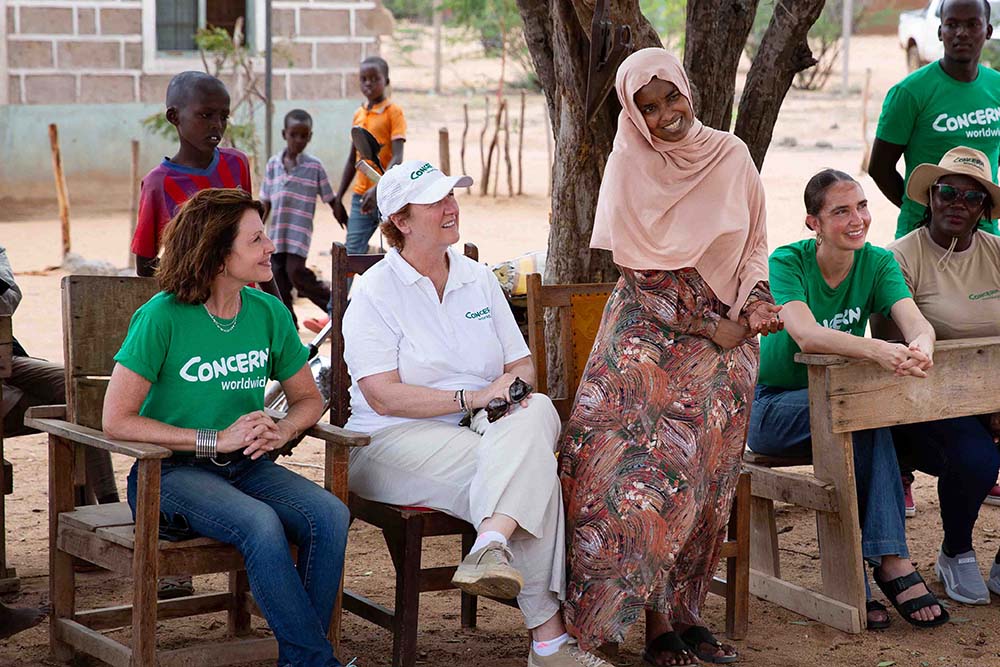
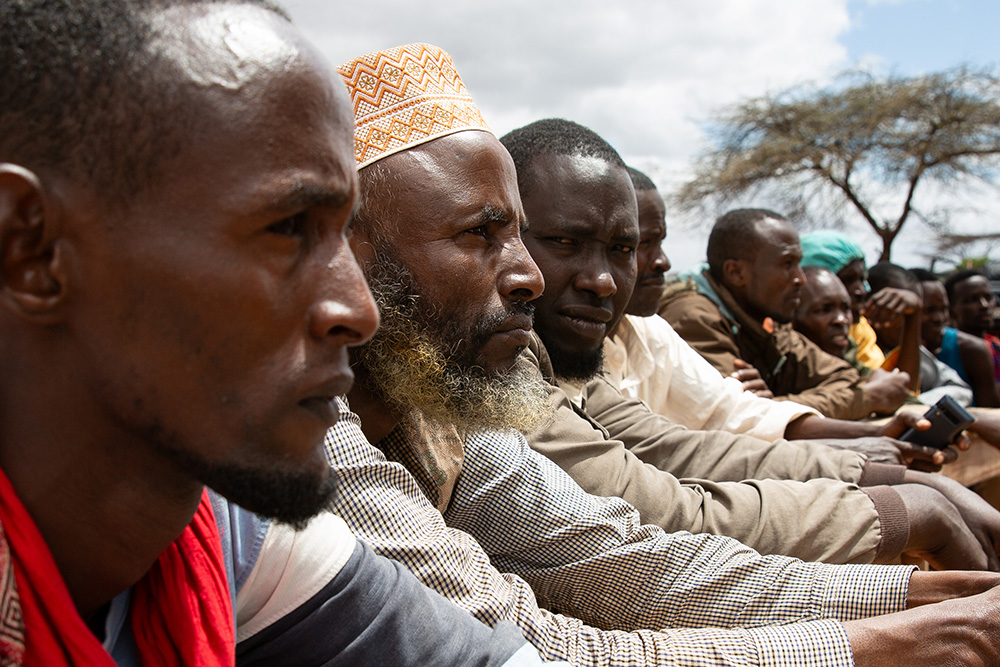
Haji Kerrow showed off his family farm, which extends to several hundred acres, and explained how it was irrigated via a series of channels flowing from the nearby canal. Here, he said, the family grows not just the ubiquitous maize crop, but also a wide variety of fruits, pulses, and vegetables, which can be brought to market and used to broaden their diet.
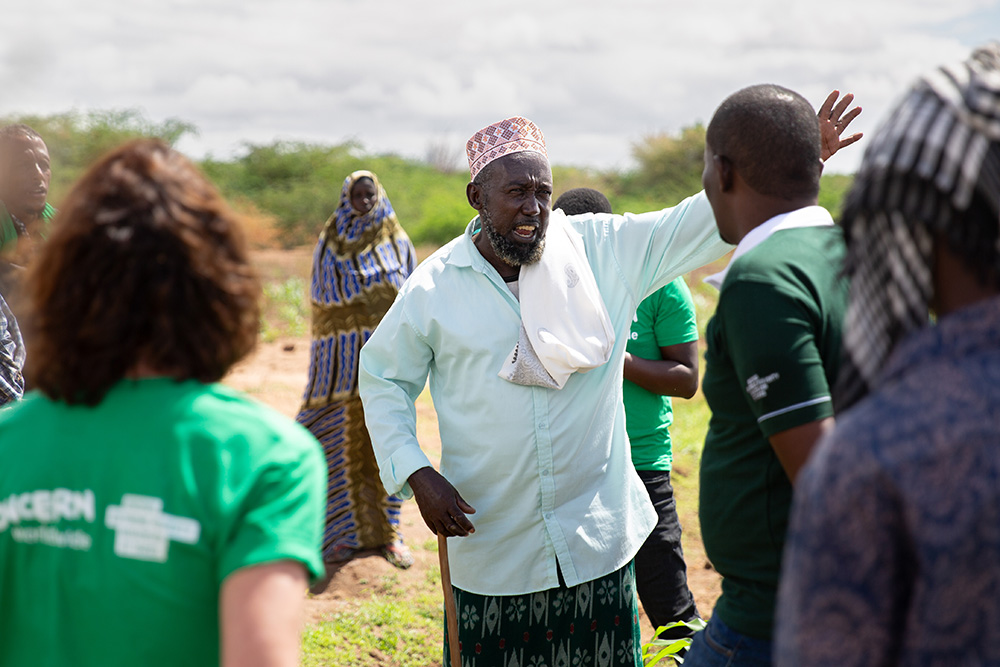
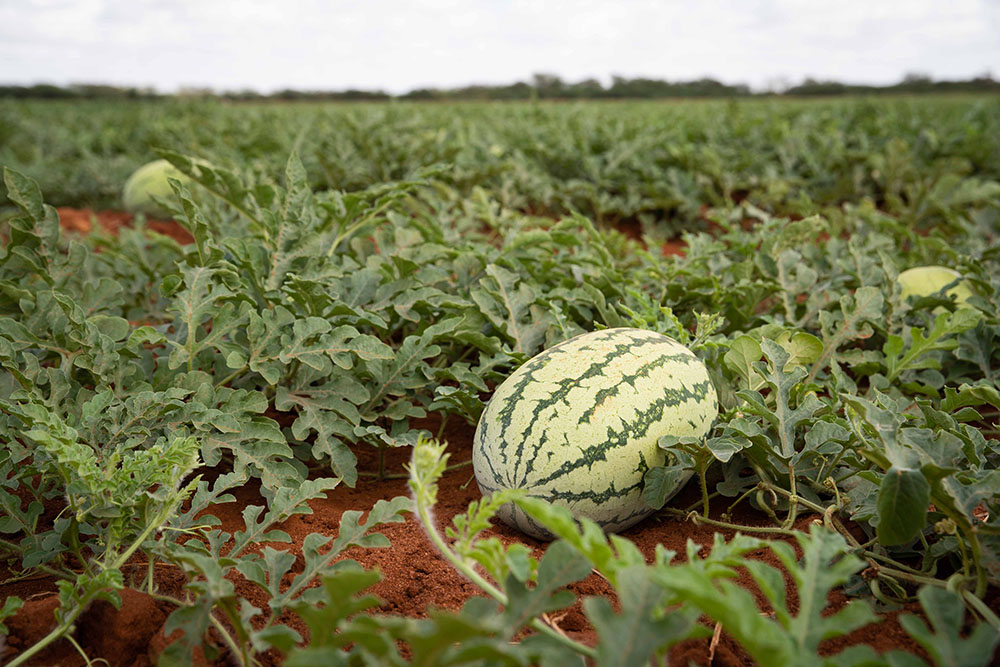
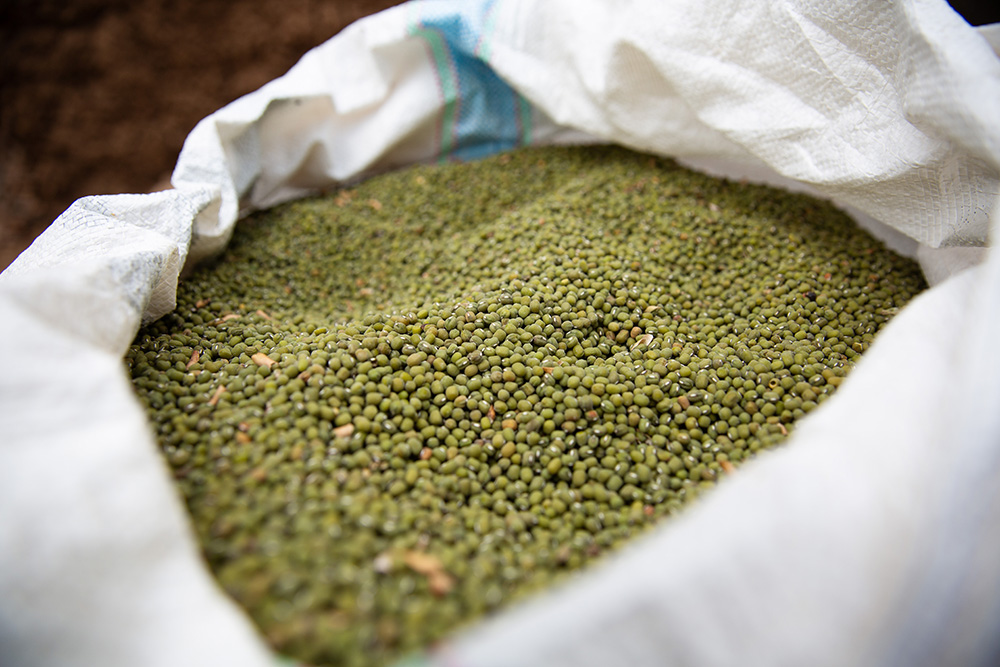
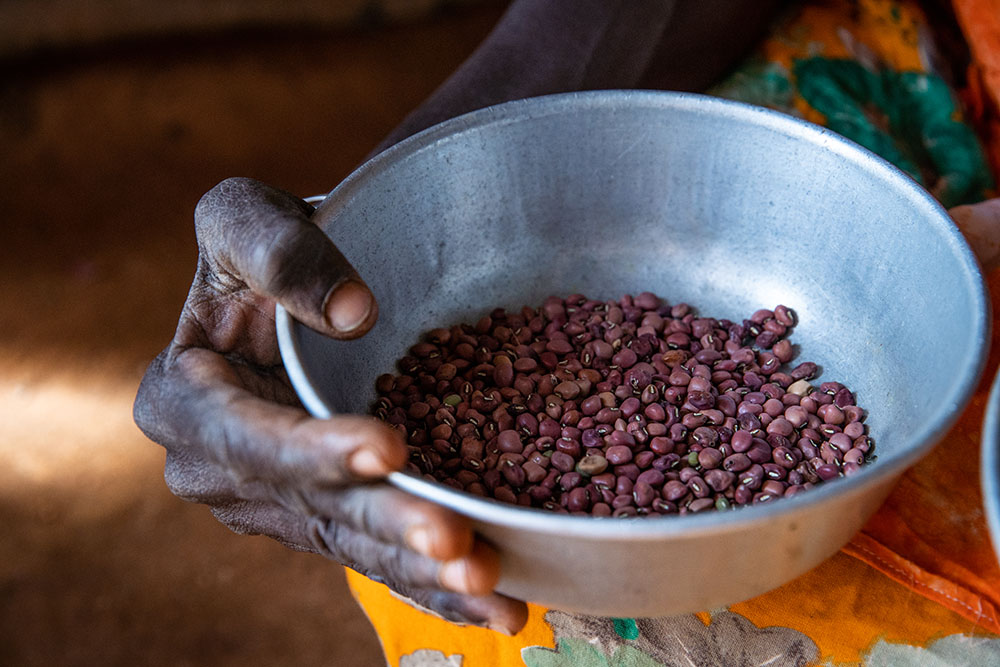
Mohamad Safari, Nursing Officer in charge at the nearest clinic, told the visiting group that the levels of malnutrition among local children has decreased dramatically thanks to the impact of the LEAF program. This he explained, was due to a combination of factors, including better food security, a more nutritious diet, and a new regime of household screening for cases of malnutrition.
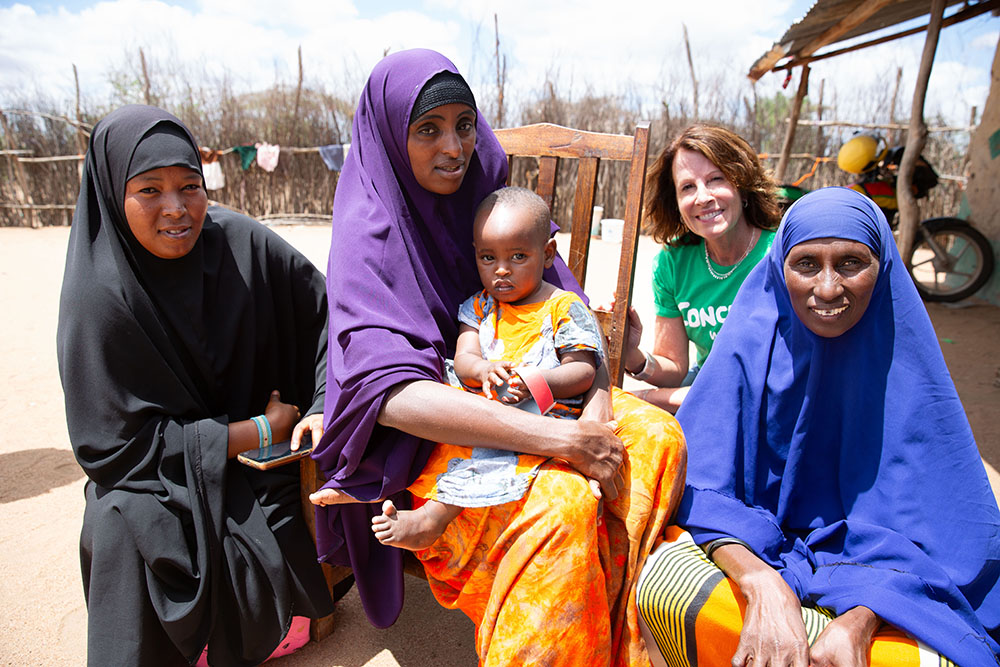
Halima Nuur demonstrated the measurement of mid-upper-arm circumference (MUAC) which helped determine that her son Akhera was acutely malnourished. Following a course of therapeutic food prescribed at the clinic, she said he was recovering well and will soon be back to his former mischievous self.
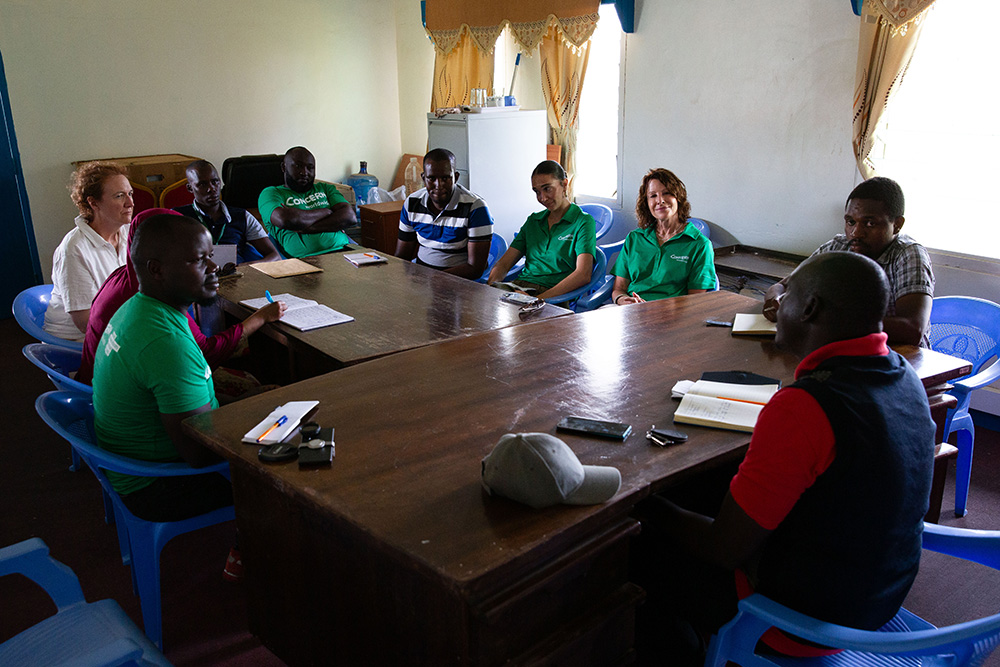
Partnering with various branches of the local and national government is key to long-term, sustainable impact, and the group got to sit in on a meeting with local representatives of the National Irrigation Authority. Alison Taylor:
"Getting water from the river to the fields is vital for unlocking the potential of all this land and it's exciting to see how the system is getting a new lease of life. Plans for a new, more efficient gravity-led irrigation system are very progressive, and it says a lot about how the authorities are investing is sustainable agriculture."
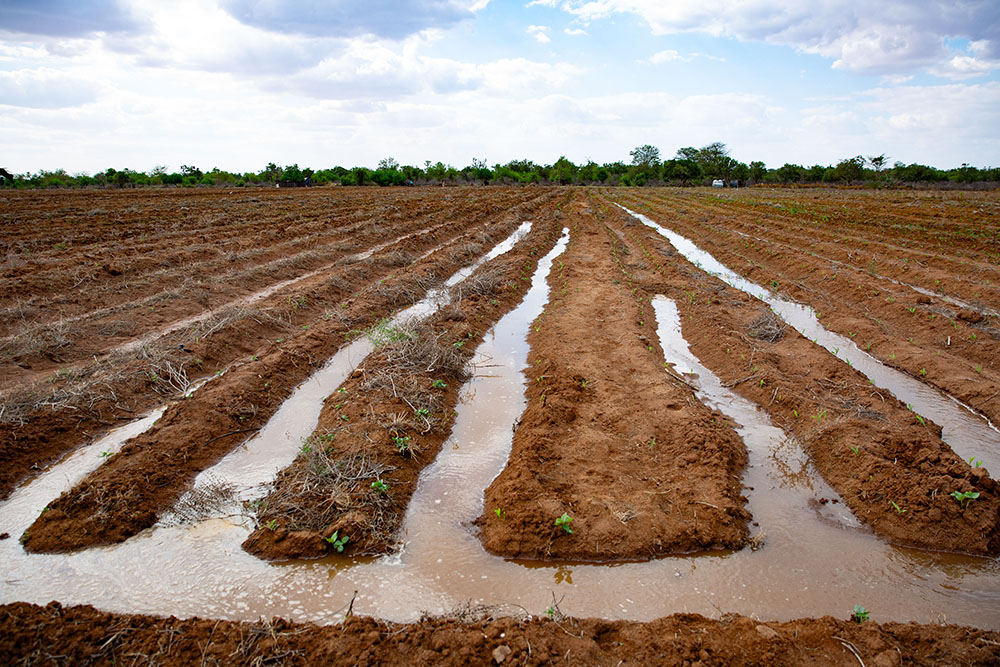
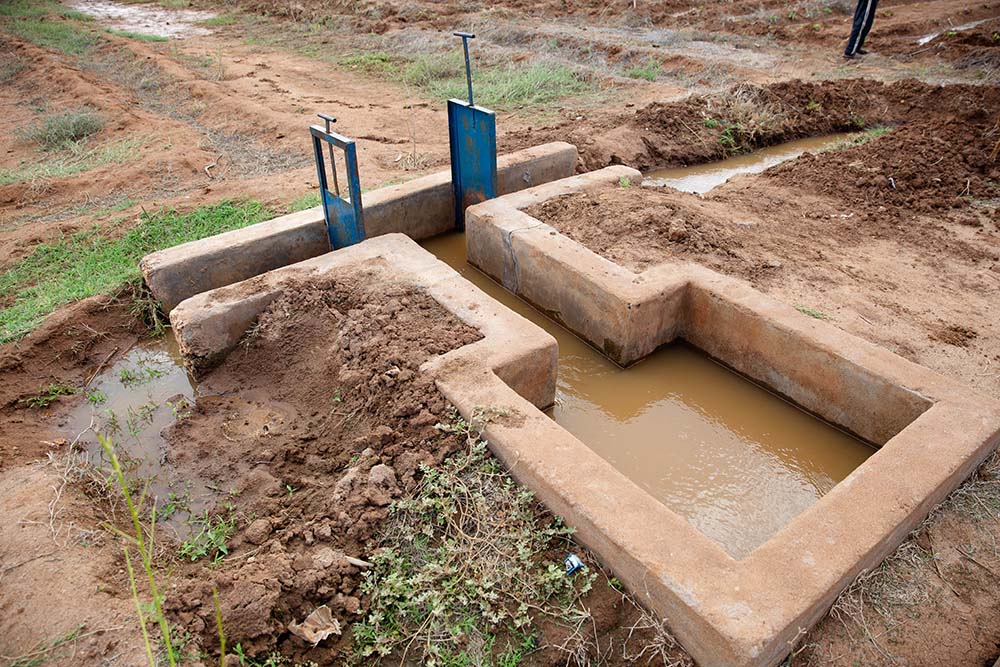
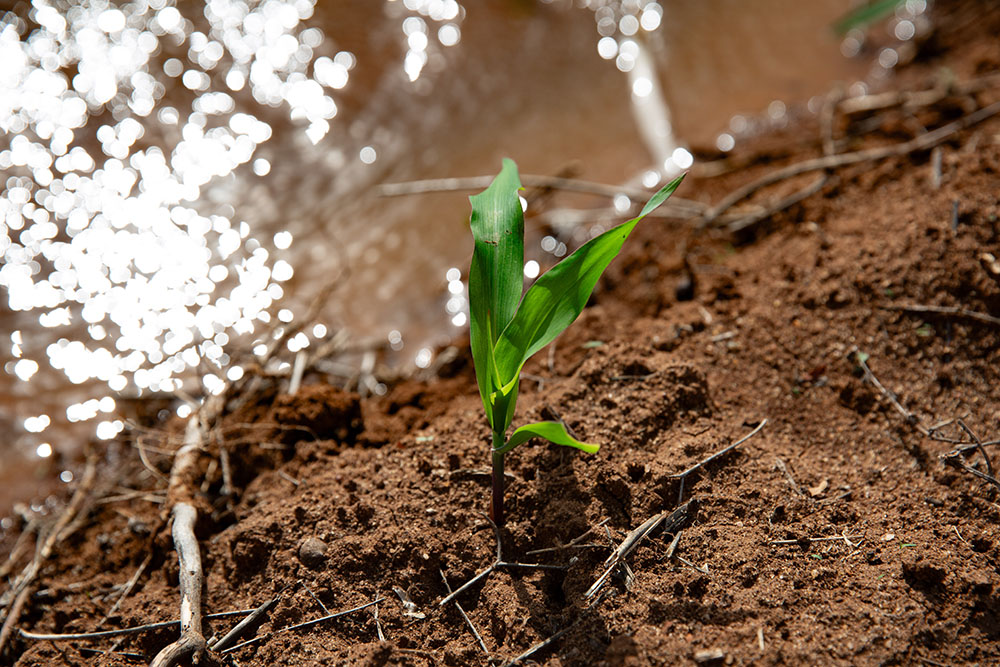
Women form the backbone of every society and that's especially true in agrarian communities. The ADM/Concern visitors sat down with an incredibly dynamic group of women in Tujisaidie, who combine motherhood, farming, and business, to discuss their successes and challenges. They are part of a village savings and loan association (VSLA) which, as the name suggests, helps drive a culture of saving and generates loans for a variety of purposes. It's clear that these women are buoyed by their achievements to date and keen to expand their activities. Getting good access to markets for their produce is high on the list of priorities.
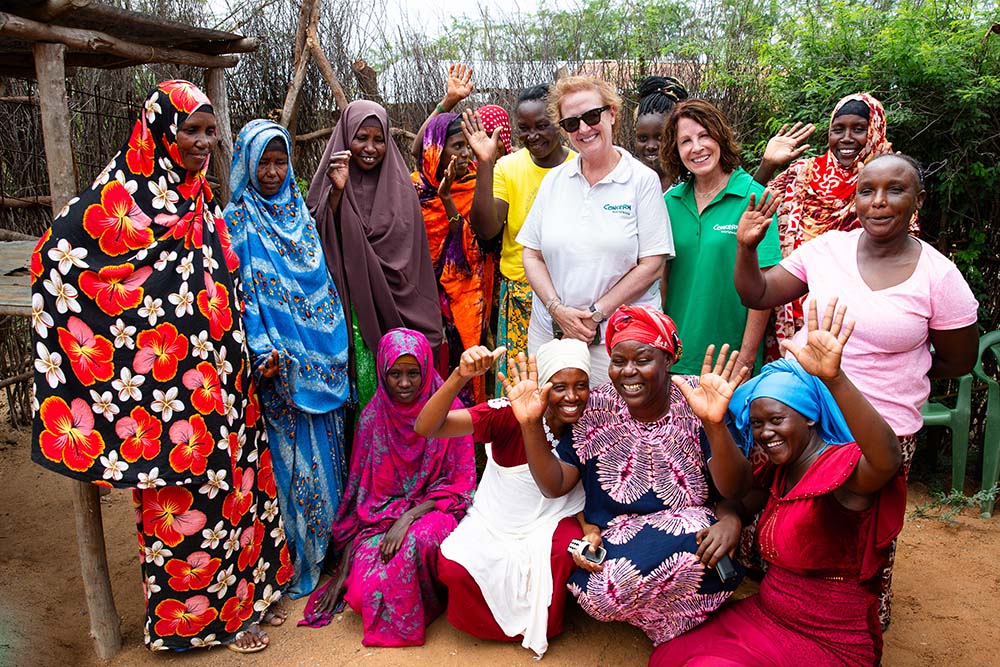
A visit to a nursery for improved varieties of rice and a stop at the very impressive farmholdings of Bilbil-Muafaq rounded off the field-based element of the trip. Yussaf Adow, a massively energized community leader, is proud of the fact that they have substantially expanded the amount of land used for generating food and nutrition and says that they were happy to suggest that Concern turn their attentions elsewhere:
"We are doing well here now under our own steam and there are others who need the kind of assistance we received. We may have future requests, but for now we are happy with our situation."
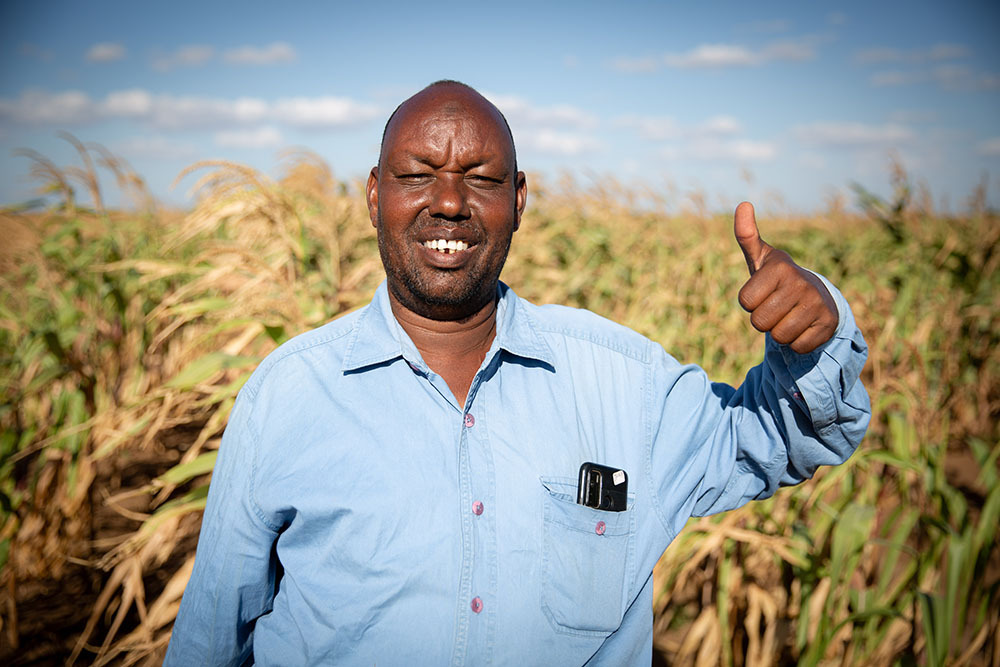
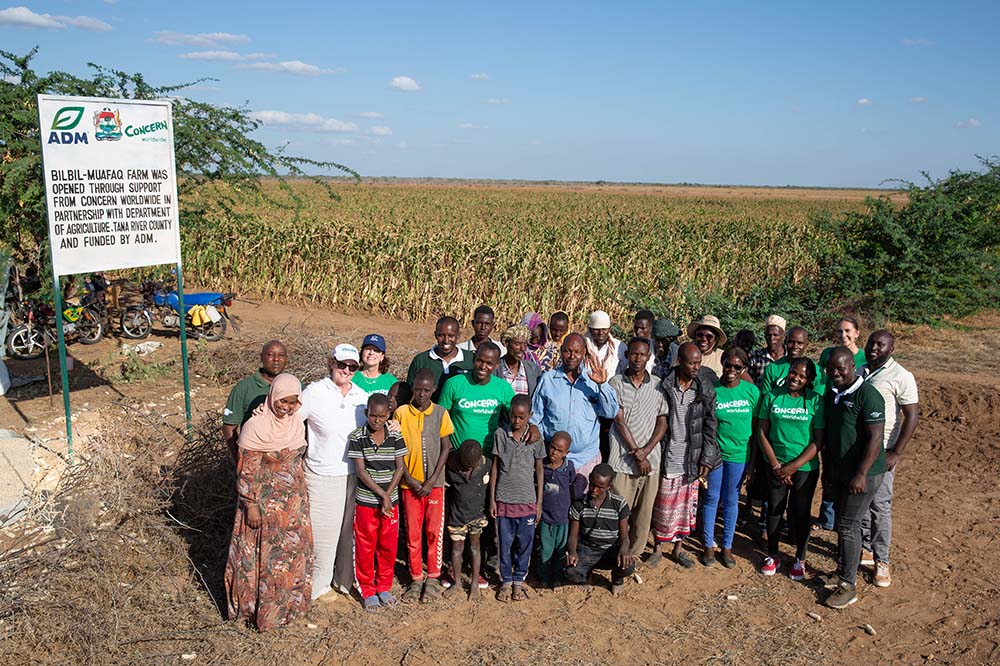
On the road out of Bilbil, a reminder that the ancient practices of animal husbandry have not been totally superseded by agriculture. Large flocks of goats and sheep (known collectively here as "shoat") are being herded towards a nearby watering spot. Concern's Jackson Mekenye explains that for many people taking part in the LEAF program, livestock are the equivalent of money in the bank. And there is a symbiosis with the cultivation of crops. In one recently harvested maize field, a herd of cattle happily munches on the leftover stalks, making occasional (organic) contributions to the fertilization of the land in advance of the next planting.
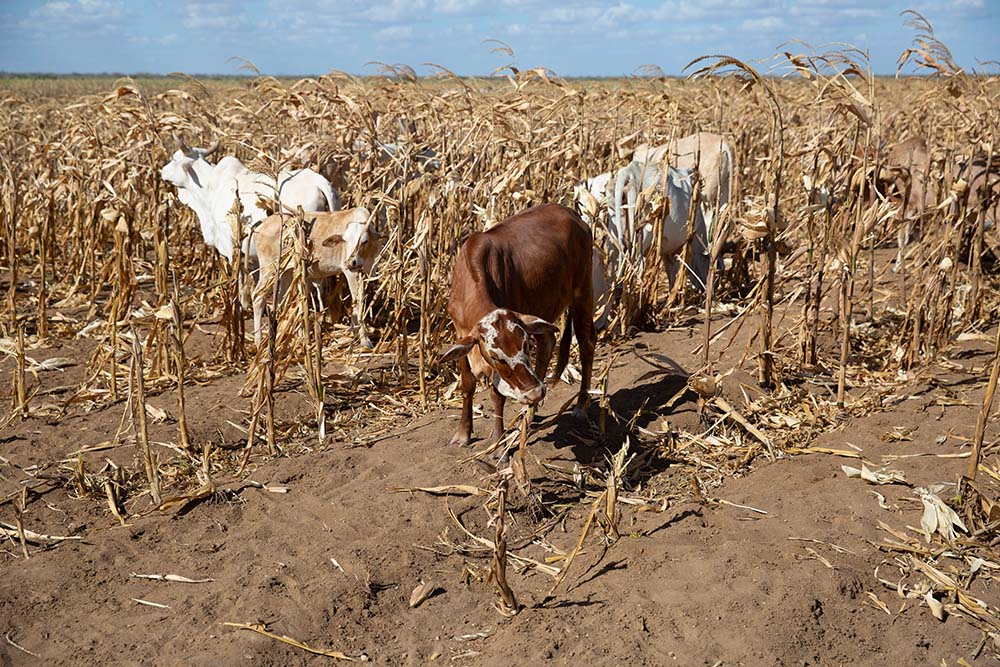
The final element of the ADM visit was a workshop with the Concern team, to go over the data and analyze how they can learn from the first phase of the program and build on what's been achieved. Alison Taylor is very positive about what she's seen:
"I'm very excited about continuing to work here, and continuing to see what more we can do in this community and in the surrounding areas as well. I'm very, very happy to have been here and to have learned so much this week."
